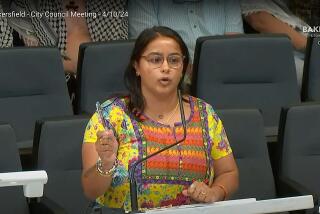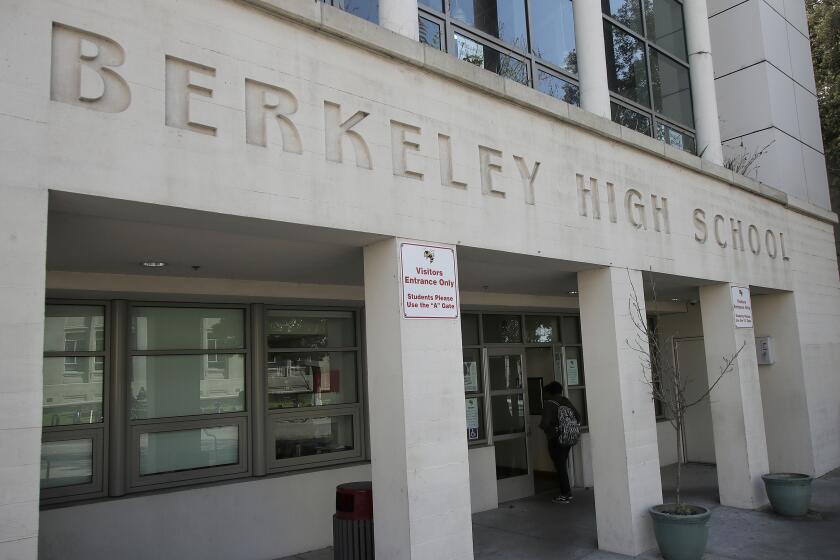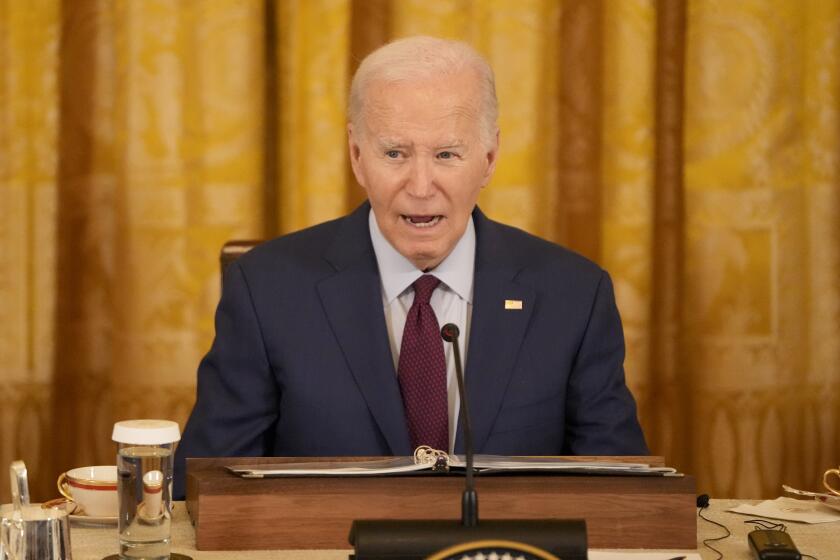California Legislature wants a say in public university budgets
Angered by years of student fee hikes at California’s public universities and colleges, lawmakers are pursuing legislation that would give them broad new powers over how the higher education systems spend taxpayer money.
The proposals include measures to limit student fees, freeze executive compensation and increase budget transparency, and even a constitutional amendment that would strip the University of California of its historic autonomy.
Gov. Arnold Schwarzenegger vetoed several such proposals, but legislative leaders, faculty and student groups and labor unions are hoping for an ally in Gov.-elect Jerry Brown, who investigated fundraising practices at the California State University in his current job as attorney general.
Officials from the Cal State and UC systems applauded the $584 million that lawmakers restored in the state budget this year to help compensate for past cuts. But they said they were still struggling to avoid further reductions in course offerings, faculty hiring and student services and, with the state facing a $25.4-billion deficit over the next 18 months, anticipate more cuts next year.
“We don’t look at the budget in a one-year silo,” said Patrick J. Lenz, UC’s vice president for budget.
The fee increases have accompanied years of executive bonuses and come as the University of California undertakes an aggressive recruitment effort aimed at out-of-state and international students to boost revenue.
Lawmakers say the combined actions threaten a fundamental promise of life in the Golden State: an affordable, high-quality public college education. That principle, enshrined in the state’s master plan for higher education 50 years ago, was reaffirmed by the Legislature in a report this year.
Acknowledging a philosophical shift, both university systems have changed student “fees” to “tuition,” feeding legislators’ appetite for more oversight.
In a letter to University of California officials last month, Assembly Speaker John A. Pérez (D- Los Angeles) called for full transparency in budgeting. He noted that previous fee increases had already provided a combined $950 million for both systems and suggested that the Legislature should play a more active role in university budgeting.
“I’m sure legislators want to be engaged in that discussion,” Pérez told The Times.
State Senate leader Darrell Steinberg (D- Sacramento) sent his own missive, arguing that the fee increases would price middle-class Californians out of a public college education. Earlier in the year, Steinberg asked three regents in a confirmation hearing to commit to managerial and administrative audits before moving to raise student fees in the future (they agreed).
At a Senate Education Committee meeting in April, lawmakers called on UC and Cal State administrators to rein in their compensation practices, citing a $30,000 dog run included in a $600,000 renovation plan for the residence of the former UC Santa Cruz chancellor in 2006 and UC President Mark G. Yudof’s salary and benefits of more than $800,000.
The state is auditing spending practices and fundraising methods at the University of California. The resulting report will almost certainly fuel the debate over more legislative control.
Some lawmakers say UC’s constitutional autonomy prevents the Legislature from holding university administrators accountable for how they spend public money.
“All we know is we dump money in and they come out short,” said state Sen. Leland Yee (D- San Francisco), who requested the audit. “… Every time you ask UC what’s going on, they say, ‘It’s none of your business.’ ”
Last week, Yee resuscitated a bill that would require university foundations and auxiliaries to adhere to state open-records laws. The issue exploded this year after Cal State Stanislaus refused to disclose information about a June fundraising appearance by former Alaska Gov. Sarah Palin.
Yee said he also planned to renew his proposed constitutional amendment as well as legislation that would ban pay hikes for top administrators at public universities in bad budget years. He pointed to UC regents who approved a $410,000 raise for UCLA’s top hospital executive this year, bringing the administrator’s total compensation to $1.3 million. Officials said the money comes from private donations.
Both of Yee’s bills passed the Legislature but were rejected by Schwarzenegger, who said they would discourage donors who want to give anonymously and limit the universities’ ability to attract the best staff.
Yee hopes for a better reception from Brown, who investigated the Cal State Stanislaus incident as attorney general. Although he found no wrongdoing, Brown said the foundation had not exercised adequate oversight of its $20 million in assets.
In a plan released during his gubernatorial campaign, Brown wrote that the state’s fiscal crisis calls for a “major overhaul of many components of the postsecondary system” and pledged to gather education stakeholders to draft a new master plan for it.
This week, Brown, a UC Berkeley graduate, declined through a spokesman to comment on specific legislation or the concept of more legislative oversight.
In addition to Yee’s measures, Assemblyman Anthony Portantino (D-La Cañada Flintridge) reintroduced a bill that did not pass the Legislature and would create new benchmarks to measure the performance of public university systems and the state’s community colleges.
University-related labor unions support the lawmakers’ oversight efforts.
Lillian Taiz, president of the California Faculty Assn. and a history professor at Cal State L.A., railed against university officials’ “bucket financing.”
“They get a bucket of financing, and they spend the money as they wish,” she said. “… A little more sense of where the money is spent and what the priorities are — and a better sense of what the priorities should be — are probably in order.”
University officials said they were dedicated to transparency, and fee increases were necessary to maintain high-quality institutions in a state plagued with chronic budget crises.
At UC, regents approved an expanded financial aid program, saying that with the addition of federal tax credits and state and federal aid, many students with an annual family income of less than $80,000 would pay no tuition next year.
Lenz, the UC vice president for budget, said he and his staff visited Sacramento in late October to brief the Legislature and the administration on the coming fee increases before regents considered the proposal.
He rejected the notion of more legislative control, citing the turnover in the Legislature under term limits and the protracted state budgeting process of recent years.
“We have a fiduciary responsibility to long-term planning. When you’re playing politics with the university year in and year out, how does a university manage that?” he asked.
UC has pledged to tighten its belt, seeking to achieve as much as $500 million in administrative savings over the next five years at its 10 campuses, Lenz said.
At Cal State, a spokesman said the chancellor’s office has trimmed spending by $6 million annually, cut 95 positions and reduced systemwide travel expenses by $10 million.
Higher student fees, however, cannot be ruled out, Lenz said.
“I’m not certain, given the state’s fiscal condition,” he said, “that we can get back to a point in time where we would propose a budget to the regents without a fee recommendation.”
More to Read
Start your day right
Sign up for Essential California for news, features and recommendations from the L.A. Times and beyond in your inbox six days a week.
You may occasionally receive promotional content from the Los Angeles Times.






